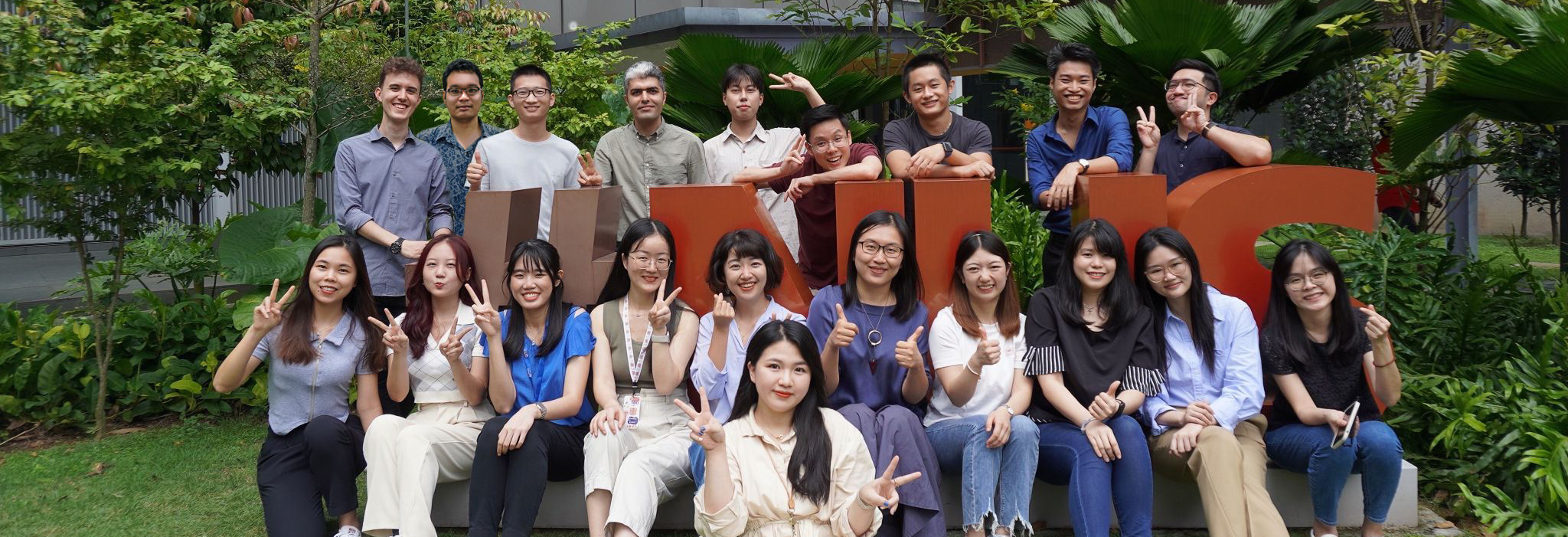Food Microbiology & Safety
About Us
Safer food saves lives. Billions of people are at risk and millions fall ill every year; many die as a result of consuming unsafe food. According to the estimation of WHO (2015), of the approximately 600 million cases of illness caused by the 31 foodborne hazards in 2010, diarrhoeal-causing infectious (thus microbiological) agents accounted for the vast majority.
Our study on Food Microbiology & Safety is divided into three subgroups:
Foodborne viruses cause high burden of diseases worldwide, even in small country like Singapore. The current detection methods of foodborne viruses still suffer from multiple limitations such as low viral extraction efficiency from foods and inability to discriminate between infectious and non-infectious viruses. Our work is to improve the current detection methods of foodborne viruses from the most relevant food types including berry fruits (Noroviruses), pig liver products (Hepatitis E Virus) and shellfish (Noroviruses, Hepatitis A Virus, Hepatitis E Virus, Rotavirus, etc.). Meanwhile, we are also specifically interested in rapid and/or molecular detection methods of other important foodborne pathogens such as Salmonella and Vibrio.
Our world is changing rapidly, so does the associated food safety situation. Nowadays, people seek healthier and more sustainable foods. At the same time, we never stop our efforts on studying the emerging microbial threats. This is not only to identify what the risks are, but more importantly, to find out how to avoid and prevent the risks from entering the food chains from farm to fork.
One of the best examples is our study on the microbial safety of urban agriculture. In recent years, there is no doubt that the development of urban agriculture is of great importance for Singapore as well as the rest of the world due to food security requirement and sustainability reasons. Traditionally, it is well-known that leafy green vegetables harbour a large amount of micro-organisms and thus, are at risk for pathogen occurrence. Many people tend to believe urban agriculture is a solution for the safety issues. On the contrary, it is also possible that “when people mess up indoors, everything is magnified” (AGFUNDER News, 20 June 2018). Hence, we perform microbial safety evaluations of urban farming in Singapore, fundamental studies on molecular mechanisms of pathogen occurrence on fresh produce as well as the influencing factors such as modern agricultural technologies, practices and plant microbiome.
Ultimately, one of the key questions in Food Microbiology & Safety is still how to mitigate the microbial contamination in our food chains from farm to fork. We dedicate continuous efforts in searching for novel and natural antimicrobial strategies by incorporating multi-disciplinary expertise on material sciences, food enzymology, food chemistry, food fermentation and probiotics studies from both local and international collaborators.
Current Research Projects
- Singapore Food Story Theme 3: Proactive mitigation of microbial contamination in hydroponic farming systems (2022-2025)
- JSPS-NUS Joint Research Project: Study of Antimicrobial Resistance (AMR) Transmission in the Biofilms of Hydroponic Farms (2022-2024)
- NUS Reimagine Research Scheme: Development of novel probiotics-carrying foods for human health promotion (2022-2024)
- AME Young Individual Research Grant: Microbial surveillance of “plant factories” in Singapore and the associated mechanisms of human pathogen occurrence on leafy green vegetables (2019-2022)
Our Group Members

Li Dan's Research Group
Latest Publications
Please refer to Dr Li Dan’s website to view her latest publications.

